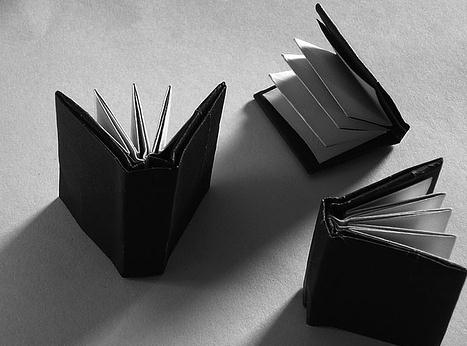八年级英语上册第五单元知识点第1篇重要句型:(1)Whatdoyouthinkoftalkshows?Idon’tmind(2)IhopetobeaTVreporteroneHowaboutyou?常下面是小编为大家整理的八年级英语上册第五单元知识点,供大家参考。

八年级英语上册第五单元知识点 第1篇
重要句型:
(1)What do you think of talk shows?I don’t mind
(2)I hope to be a TV reporter one How about you?
常用法:
(1)let sb 让某人做某事
(2)plan to do 计划做某事
(3)hope to do 希望做某事
(4)mind doing sth 介意做某事
(5)expect to do 期待做某事
(6)How(what)about doing…做某事怎么样?
(7)be always ready to do 总是准备做某事
(8)try one’s best to do 尽力做某事?
(9)become +adj 变得…
(10)not so … 不像…那样….;
不如…这么…
(11)thank you for doing sth 谢谢你做某事
Thank you for sth 谢谢你的……
(12)love doing sth 喜爱做某事
八年级英语上册第五单元知识点 第2篇
【重点语法】
形容词比较级和最高级规则变化:
① 多数单音节形容词 = 词尾加 er 或 est
long tall clean长的高的干净的longer taller cleaner较长的较高的较干净的longest tallest cleanest最长的最高的最干净的② 以e结尾的单音节形容词-------- 词尾加 r 或 stlargelate nice大的晚的好的larger later nicer较大的 较晚的 较好的largest latest nicest 最大的 最晚的 最好的③ 以重读闭音节结尾,且结尾只有一个辅音字母的形容词-------双写这个辅音字母,再加er或 estbig hot thin大的热的瘦的bigger hotter thinner较大的 较热的 较瘦的biggest hottest thinnest最大的 最热的 最瘦的④ 以“辅音字母 + y”结尾的形容词---------- 变y为i,再加er或 esteasybusyangry容易的 繁忙的 生气的easier busier angrier较容易的较忙的 较生气的easiest busiest angriest最容易的最忙的 最生气的⑤ 两个或两个以上音节的形容词-------- more/most + 形容词原级beautifulimportant美丽的 重要的more beautifulmore important较美的 较重要的most beautifulmost important最美的 最重要的
不规则变化:good/well---better---best, bad/badly---worse---worst,
many/much---more---most, little---less---least,
far---farther/further---farthest/futhest
形容词原级,比较级和最高的用法:
1 当两者进行比较时,通常用形容词的比较级形式,其后用than引出比较的对象。形容词比较级前常用much,a lot,even等修饰。‘比较级+and+比较级’表示‘越来越……’; ‘the+比较级,the+比较级’表示‘越……,越……’。
2 当三者或三者以上的人或事物进行比较,表示‘最’的意思时,用形容词最高级形式,且最高级前面必须要有定冠词the,在使用形容词最高级时,后面通常接‘…’,表示比较的范围。当比较的范围与主语是同一类人或物,或属于同一概念是,要用介词of引导的短语;当比较的范围与主语不是同一类人或物,强调在某一范围或场所内进行比较时,要用介词in引导的短语。
八年级英语上册第五单元知识点 第3篇
Section B 知识提纲
一、词型转换
mean 意思是 → meant → meaning 意思
meaning → meaningful 有意义的→ meaningless 毫无意义的
表演,扮演→ action 行动,actor 男演员actress女演员
→ became 富有的→ poor 贫穷的
成功→ success 成功→获得成功的
运气→ lucky 幸运的→ unlucky 不幸的,不吉利的
→ luckily 幸运地→ unluckily 不幸地
lose 失去,丢失→ lost
二、短语
movie动作影片
be ready to 准备好(做某事),愿意(做某事)
up 装扮,乔装打扮
take one’s place 代替,替换
do a good job 干得好
out 出版,发行
try one’s best 尽最大努力
三、词法
well known 著名的,出名的
? be famous for 因……而著名
? be famousas 作为……而著名
Lang Lang is famous for playingthe piano . 郎朗因弹钢琴出名。
Lu Xun is famous as a writer . 鲁迅作为一名作家而著名。
succeed 成功 ? success successful successfully
? succeed in doing 成功地做某事
At last he succeeded in solvingthe problem .
最后他成功地解决了这个问题。
reason 原因,理由reasonfor / doing 某事/做某事的原因
Give me the reason for helpinghim . 给我你帮他的原因。
ready for sth 为……做好准备
be ready to do sth . 准备好做某事/ 愿意做某事
lose 失去,丢失 ? lost 丢失的getlost= lose one’s way 迷路
尝试,设法tryto do sth .设法做某事try doing sth .尝试做某事
try one’s best 尽某人最大努力tryon 试穿havea try 试一试
四、语法——动词不定式作宾语
? 动词不定式的肯定式为:to+ 动词原形
? 动词不定式的否定式为:notto + 动词原形
? 一些动词(短语)后常跟动词不定式作宾语,常见的这类动词是
表示打算或希望的。如:wouldlike , want , wish , hope , decide ,
plan , expect 等。I planned to goshopping last night .
八年级英语上册第五单元知识点 第4篇
重要短语:
(1)find out 查明,弄清
(2)be ready to do 准备好做某事
(3)dress up 装扮,乔装打扮
(4)take sb`s place代替,替换
(5)do a good job 干得好??
(6)think of +名词或动词短语??认为….
(7)game shows游戏节目
(8)learn from向…学习从…获得
(9)talk shows 脱口秀
(10)soap opera肥皂剧
(11)go on 发生
(12)watch a movie观看一场电影
(13)one ofthe main reasons 最主要的原因之一
(14)watch a sitcom观看一部情景喜剧
(15)action movies 动作电影?
(16)come out 出版,发行
(17)try one’s best 尽力,竭尽全力??
(18)a pair of一双,一对…
(19)as famous as一样著名
(20)look like 看起来像
(21)around the world 世界各地
(22)have a discussion about…就…….讨论
(23)one day有一天
(24)such as比如
(25)a symbol of…的象征?
(26)something enjoyable令人愉快的东西
(27)interesting information有趣的资料
(28)happen to do 碰巧做某事
(29)expect to do 盼望做某事??
(30)TV shows 电视节目
八年级英语上册第五单元知识点 第5篇
语词辨析:
other, the others, other, others,another
the other 表示特指两个或者两部份中的另一个或另一部分,常用one …theother…。例:
He has two apples, one is red, theotheris
There are forty students in our are girls, the othernineteen are
the others 特指某一范围内的其他的(人或物),是the other的复数形式,相当于theother+复数名词。theother + 复数名词= anyother + 名词单数。例:
You two stay here, the othersgowith
other 作代词或形容词,可修饰可数名词单数或复数。
We learn Chinese, Maths, English andother
others 作代词,泛指“其他的人或物”。例:
Somestudents are doing homework, othersare talking
another 泛指同类事物中的三者或三者以上的“另一个”,只能代替或修饰单数可数名词。例:
I don’t like this Please show meanother
out查明,弄清楚,find 找到
Please find out when Mrs Green will goto
go on 发生,与take place 同义
I wonder what was going
发生,一般指偶然发生,主语为事,不能为人。
Sth + happens to
Sth + happens + 地点/时间:某地/某时发生了某事
Happen v,表示“碰巧”,主语可以是人,后常跟动词不定式to,表示“碰巧……”.
Sb + happens to do
I happened to see my uncle on
take place 意为“发生,举行,举办”,一般指非偶然性事件的“发生”,即这种事件的发生一定有某种原因或事先的安排。例:
Great changes have taken place
The meeting will take place
期待,盼望,预期,后常接四种结构:
1)expect + 名词/代词,期待某事/某人,预计……可能发生。
I’m expecting Li Lin’s
2)expect to do 预计做某事
Lily expects to come back next
3)expect to do
I expect my mother to come back
4)expect + 从句预计……
I expected that I’ll come back
serious 严肃的,认真的。He is a serious
be serious about 对某人/某事当真
be serious about doing 对某事当真
